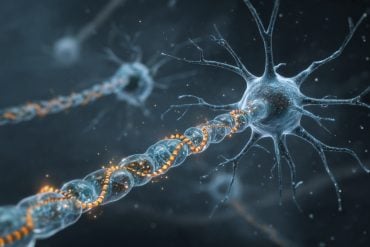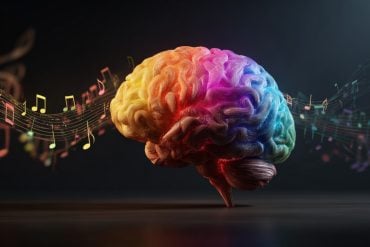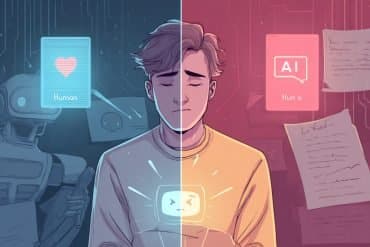Different levels of brain response to sham treatment could predict resilience in the face of depression, help lead to new treatments.
When it comes to treating depression, how well a person responds to a fake medicine may determine how well they’ll respond to a real one, new research finds.
Those who can muster their brain’s own chemical forces against depression, it appears, have a head start in overcoming its symptoms with help from a medication. But those whose brain chemistry doesn’t react as much to a fake medicine, or placebo, struggle even after getting an active drug.
The findings, published in JAMA Psychiatry and made at the University of Michigan Medical School, help explain the variation in treatment response and resiliency that bedevils depression patients and their care teams.
The discovery also opens up the door to new research on how to amplify the brain’s natural response in new ways — to improve depression treatment for the estimated 350 million people worldwide who have depression at any given time.
The findings could also help those developing and testing new drugs, helping them correct for the placebo effect that gets in the way of measuring a drug’s true effect.
Natural painkillers respond
The study comes from a team that has studied the placebo effect for more than a decade, using sophisticated brain scanning techniques in healthy people.
They were pioneers in showing that the brain’s natural “painkiller” system – called the mu-opioid system — responded to pain when patients got a placebo. They’ve also studied the genetic variation that makes certain people more likely to respond to sham painkillers.
For the new study, they studied the brain chemistry of 35 people with untreated major depression, who agreed to try what they thought was a new depression drug, before receiving actual drugs already approved to treat depression.
The team found that participants who reported improvement of depression symptoms after getting the placebo also had the strongest mu-opioid response in brain regions involved in emotion and depression. And these individuals were also more likely to experience even fewer symptoms once they got a real drug.
In fact, response to placebo predicted nearly half of the variation between individuals in total response to the entire study, including actual drug treatment.
A potential biomarker for depression respoinse?
“This is the first objective evidence that the brain’s own opioid system involved in response to both antidepressants and placebos, and that variation in this response is associated with variation in symptom relief,” says the paper’s first author Marta Pecina, M.D., Ph.D., a research assistant professor in the U-M Department of Psychiatry and member of the U-M Depression Center.
“This finding gives us a biomarker for treatment response in depression — an objective way to measure neurochemical compounds involved in response,” she continues. “We can envision that by enhancing placebo effects, we might be able to develop faster-acting or better antidepressants.”

The research team was led by Jon-Kar Zubieta, M.D., Ph.D., a former U-M faculty member who now chairs the Department of Psychiatry at the University of Utah. He notes that the placebo effect in the study came not only from participants’ belief that they were receiving a real drug, but also from the sheer impact of being in a treatment environment.
Even as scientists work to understand this effect further, clinicians who treat people with depression may want to take heed of the findings, he notes.
“These results suggest that some people are more responsive to the intention to treat their depression, and may do better if psychotherapies or cognitive therapies that enhance the clinician-patient relationship are incorporated into their care as well as antidepressant medications,” he says. “We need to find out how to enhance the natural resiliency that some people appear to have.”
Studies testing antidepressants against placebos suggest that 40 percent of response is due to the placebo effect. To drug developers, this is a nuisance. But to placebo researchers, it’s like catnip.
“If 40 percent of people recover from a chronic illness without a medication, I want to know why,” says Zubieta. “And if you respond to a medication and half your response is due to a placebo effect, we need to know what makes you different from those who don’t respond as well.” This could include genetic effects that are still to be discovered.
Next steps in probing placebo power
The new findings were made using position emission tomography, or PET, scanning, and a substance that attaches to the receptors on brain cells that mu-opioid molecules bind to. In the single-blind randomized crossover design, the participants went in knowing that they wouldn’t be told full details about the purpose of the study until the end.
They then received two weeks of placebo pill treatment – but during one of those weeks, each was told they were taking a substance that is believed to activate internal mechanisms and may have antidepressant properties. At the end of this week, they also came for a brain scan and received an injection of harmless salt water that they were told might have fast-acting antidepressant properties. After these two weeks and scan, they were prescribed a real antidepressant. They reported their depression symptoms using standard measurement scales throughout the study period.
The researchers are also studying other molecules in the brain that are involved in depression and treatment response, and are recruiting people for further brain-scanning studies; see here for more information.
In addition to aiding the search for better depression drugs to help placebo non-responders, the new study could help identify which patients might benefit from non-drug strategies known to help people who don’t get relief from antidepressant drugs. These include electroconvulsive therapy or ECT, deep-brain stimulation or DBS, and transcranial magnetic stimulation or TMS.
Funding: The research was funded by the National Institutes of Health (MH086858), the Phil F. Jenkins Foundation and the Michigan Institute for Clinical Health research (RR024986).
Source: Kara Gavin – University of Michigan
Image Credit: The image is credited to The Researchers/University of Michigan.
Original Research: Abstract for “Association Between Placebo-Activated Neural Systems and Antidepressant Responses Neurochemistry of Placebo Effects in Major Depression” by Marta Peciña, MD, PhD; Amy S. B. Bohnert, PhD; Magdalena Sikora, BS; Erich T. Avery, BA; Scott A. Langenecker, PhD; Brian J. Mickey, MD, PhD; and Jon-Kar Zubieta, MD, PhD in JAMA Psychiatry. Published online September 30 2015 doi:10.1001/jamapsychiatry.2015.1335
Abstract
Association Between Placebo-Activated Neural Systems and Antidepressant Responses Neurochemistry of Placebo Effects in Major Depression
Importance High placebo responses have been observed across a wide range of pathologies, severely impacting drug development.
Objective To examine neurochemical mechanisms underlying the formation of placebo effects in patients with major depressive disorder (MDD).
Design, Setting, and Participants In this study involving 2 placebo lead-in phases followed by an open antidepressant administration, we performed a single-blinded 2-week crossover randomized clinical trial of 2 identical oral placebos (described as having either active or inactive fast-acting antidepressant-like effects) followed by a 10-week open-label treatment with a selective serotonin reuptake inhibitor or, in some cases, another agent as clinically indicated. The volunteers (35 medication-free patients with MDD at a university health system) were studied with positron emission tomography and the µ-opioid receptor–selective radiotracer [11C]carfentanil after each 1-week inactive and active oral placebo treatment. In addition, 1 mL of isotonic saline was administered intravenously within sight of the volunteer during positron emission tomographic scanning every 4 minutes over 20 minutes only after the 1-week active placebo treatment, with instructions that the compound may be associated with the activation of brain systems involved in mood improvement. This challenge stimulus was used to test the individual capacity to acutely activate endogenous opioid neurotransmision under expectations of antidepressant effect.
Main Outcomes and Measures Changes in depressive symptoms in response to active placebo and antidepressant. Baseline and activation measures of µ-opioid receptor binding.
Results Higher baseline µ-opioid receptor binding in the nucleus accumbens was associated with better response to antidepressant treatment (r = 0.48; P = .02). Reductions in depressive symptoms after 1 week of active placebo treatment, compared with the inactive, were associated with increased placebo-induced µ-opioid neurotransmission in a network of regions implicated in emotion, stress regulation, and the pathophysiology of MDD, namely, the subgenual anterior cingulate cortex, nucleus accumbens, midline thalamus, and amygdala (nucleus accumbens: r = 0.6; P < .001). Placebo-induced endogenous opioid release in these regions was associated with better antidepressant treatment response, predicting 43% of the variance in symptom improvement at the end of the antidepressant trial.
Conclusions and Relevance These data demonstrate that placebo-induced activation of the µ-opioid system is implicated in the formation of placebo antidepressant effects in patients with MDD and also participate in antidepressant responses, conferring illness resiliency, during open administration.
Trial Registration clinicaltrials.gov Identifier:NCT02178696
“Association Between Placebo-Activated Neural Systems and Antidepressant Responses Neurochemistry of Placebo Effects in Major Depression” by Marta Peciña, MD, PhD; Amy S. B. Bohnert, PhD; Magdalena Sikora, BS; Erich T. Avery, BA; Scott A. Langenecker, PhD; Brian J. Mickey, MD, PhD; and Jon-Kar Zubieta, MD, PhD in JAMA Psychiatry. Published online September 30 2015 doi:10.1001/jamapsychiatry.2015.1335






